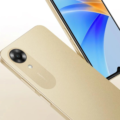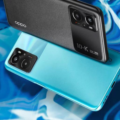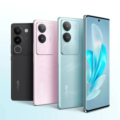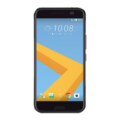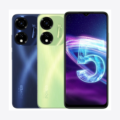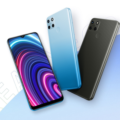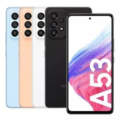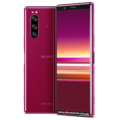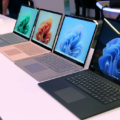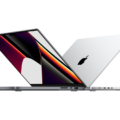Oppo A37 2GB





-
CPU
Quad-core -
RAM
2GB -
Storage
16GB -
Display
5inch -
Camera
8MP -
OS
Android 5
Oppo A37 2GB: Oppo, a company known for its innovative products and state-of-the-art technology, unveiled the Oppo A37, a smartphone that has attracted a lot of interest. This phone offers seamless multitasking and dependable performance thanks to its memory configuration of 2GB RAM. How does it do in the congested smartphone market, though? Let’s explore the Oppo A37 2GB’s characteristics, advantages, and disadvantages.
Key Features of Oppo A37 2GB
- Display: The Oppo A37 has a 5.0-inch IPS LCD screen with a 720 x 1280 pixel resolution.
- Performance: This phone offers smooth app launching and multitasking thanks to its Qualcomm Snapdragon 410 processor and 2GB of RAM. The Oppo A37 will not let you down whether you’re browsing the web, viewing videos, or playing casual games.
- Camera: The Oppo A37 has an 8MP rear camera with LED light for photographers. Selfie enthusiasts can always expect sharp and detailed images thanks to the 5MP front camera.
- Battery: The gadget has a non-removable 2630 mAh battery that, with moderate use, should last for a day.
- Storage: 16GB inbuilt memory that can be expanded to 256GB.
Pros
- Affordability: The Oppo A37 2GB’s affordable price is one of its best qualities. For the price range, it is a great bargain.
- Oppo phones are frequently referred to as “selfie experts,” and the A37 is no exception. For better selfies, the front camera has features like Beautify 4.0.
- You’ll never run out of space thanks to the possibility to upgrade storage by up to 256GB.
Summary of Oppo A37 2GB
Oppo A37 2GB: For those on a tight budget or seeking for a secondary device, the Oppo A37 2GB is a good option. Although it might not be able to meet the demands of power users or avid gamers, it does provide a fair mix of features and performance for the money. The product is unique in terms of design and camera performance, making it a strong challenger in the market for inexpensive smartphones. The Oppo A37 2GB may therefore be the right choice for you if you’re looking for a reasonably priced smartphone without sacrificing important features.
Specs
General
| Device Type | Oppo |
| Model | A37 |
| Announced | 20 June, 2016 |
| Released | 20 June, 2016 |
| Status | Available |
| Price | 17999 |
Design
| Type Design Type called form factor refers to a mobile phone's size, shape, and style as well as the layout and position of major components of phone. There are three major form factors seen in mobile phones => bar phones, folding phones and sliding phones. | Bar |
Network
| SIM SIM (Subscriber Identity Module) is a small card that contains mobile network subscriber's account information. This allows the phone using the card to attach to a mobile network. The SIM card is most commonly associated with GSM and UMTS mobile networks. Moving a SIM card from one phone to another allows a subscriber to switch mobile phones without having to contact their mobile network carrier. SIM cards can also be used by a phone to store limited amounts of data, such as phone numbers and text messages. | Standard SIM |
Display
Media
Camera
Software
| Facebook Facebook is a popular free social networking website that allows registered users to create profiles, upload photos and video, send messages and keep in touch with friends, family and colleagues. The site is available in 37 different languages. | |
| Youtube Youtube is a popular free video-sharing website, Youtube is the largest video sharing site in the world, Millions of users around the world have created accounts on the site that allow them to upload videos that anyone can watch. |
Hardware
| RAM (Memory) RAM (Random Access Memory) is a type of computer memory that can be accessed randomly, any byte of memory can be accessed without touching the preceding bytes that allows information to be stored and accessed quickly from random locations. RAM is the most common type of memory found in computer systems, smartphones, tablets and other electronic devices. | 512 MB |
Connectivity
| Infrared Infrared connectivity is an old wireless technology used to connect two electronic devices. It uses a beam of infrared light to transmit information and so requires direct line of sight and operates only at close range. | |
| Wi-fi Hotspot | |
| NFC NFC (Near field communication) is a set of standards for smartphones and similar devices to establish peer-to-peer radio communications with each other by touching them together or bringing them into proximity, usually no more than a few inches. | |
| HDMI HDMI (High-Definition Multimedia Interface) is a compact audio/video interface for transferring uncompressed video data and compressed or uncompressed digital audio data from a HDMI-compliant source device to a compatible computer monitor, video projector, digital television, or digital audio device. |
Data
| GPRS GPRS (General Packet Radio Service) is a packet oriented mobile data service on the 2G and 3G cellular communication system's global system for mobile communications (GSM), Generally, GPRS is used for the purpose of wireless data transfer, such as sharing pictures and videos or browsing the Internet via a mobile phone connection. | |
| EDGE EDGE (Enhanced Data GSM Environment) is a wireless network technology generally considered the next step in the 2G network offers data transfer rates up to four times faster than ordinary GSM networks, Generally, EDGE is used for the purpose of wireless data transfer, such as sharing pictures and videos or browsing the Internet via a mobile phone connection. |
Messaging
| SMS SMS (Short Messaging Service) is a text messaging service component of phone, Web, or mobile communication systems. It uses standardized communications protocols to allow mobile phone devices to exchange short text messages over the networks. | No |
| MMS MMS (Multimedia Messaging Service) is a standard way to send messages that include multimedia content (audio clips, video clips and images) to and from mobile phones over wireless networks using the WAP protocol. |
Battery
| Battery Type Battery Type => Cell phones run on various kinds of batteries depending on the manufacturer, phone size or shape and features. There are basically four types of cell phone batteries => Lithium Polymer, Lithium Ion, Nickel Metal Hydride and Nickel Cadmium. | Li-Ion (Lithium Ion) |

